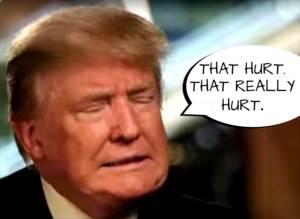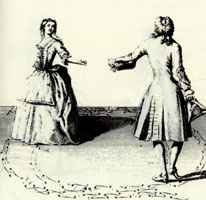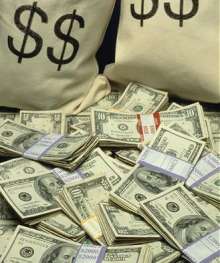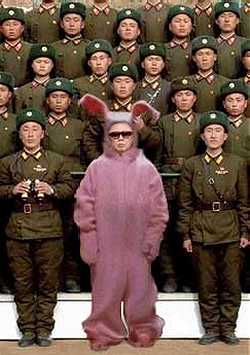North Korean media say leader Kim Jong Il has pardoned two American journalists and ordered their release during the visit of former U.S. President Bill Clinton.
THIS IS A BREAKING NEWS UPDATE. Check back soon for further information. AP's earlier story is below.
SEOUL, South Korea (AP) Former President Bill Clinton met Tuesday with North Korean leader Kim Jong Il on the first day of a surprise mission to Pyongyang to negotiate the release of two Americans, holding "exhaustive" talks on a wide range of topics, state-run media said.
Clinton "courteously" conveyed a verbal message from President Barack Obama, the official Korean Central News Agency said in a report from Pyongyang. Kim expressed his thanks, and engaged Clinton in a "wide-ranging exchange of views on matters of common concern," the report said.
White House spokesman Robert Gibbs, however, denied Clinton went with a message from Obama. "That's not true," he told reporters.
Clinton was in communist North Korea on a mission to secure the freedom of Americans Euna Lee and Laura Ling, reporters for former Vice President Al Gore's Current TV media venture who were arrested along the Chinese-North Korean border in March and sentenced in June to 12 years of hard labor for illegal entry and engaging in "hostile acts."
His landmark visit, which was not announced in advance by North Korea or the U.S., comes at a time of heightened tensions between Washington and Pyongyang, foes during the Korean War of the 1950s, over the regime's nuclear program.
North Korea in recent months has conducted a nuclear test and test-fired an array of ballistic missiles in violation of U.N. Security Council resolutions, with Washington leading the push to punish Pyongyang for its defiance.
It's only the second visit to Pyongyang by a former U.S. leader. Jimmy Carter traveled to North Korea for talks with Kim's father, Kim Il Sung, in 1994 in a groundbreaking meeting during a time of similar tensions.
Clinton's meeting with Kim would be the notoriously reclusive North Korean leader's first with a prominent Western figure since Kim reportedly suffered a stroke a year ago, sparking questions about the future of the nation he controls with absolute authority.
Kim, said to have a taste for fine wines and fancy gourmet food, also is believed to suffer from chronic diabetes and heart disease. The man who once sported a noticeable pot belly has appeared gaunt and gray in recent months.
Though Clinton was in North Korea on a private basis, his visit was treated by North Korea as a high-profile visit, with senior officials including Kim Kye Gwan, the vice foreign minister who serves as the country's chief nuclear negotiator meeting him on the tarmac.
Footage from the APTN television news agency showed the arriving Clinton exchanging warm handshakes with the officials and accepting a bouquet of flowers from a schoolgirl.
Kim later hosted a banquet for Clinton at the state guesthouse, Radio Pyongyang and the Korean Central Broadcasting Station reported.
Photos in state-run media of the visit showed Kim, with a broad smile, standing next to a solemn-looking Clinton. The two also posed with Clinton's party in front of a mural, and another picture showed the men and others seated around a conference table.
Though Clinton does not hold office, his stature and good relations with Pyongyang could yield positive results, analysts said.
"This is a very potentially rewarding trip. Not only is it likely to resolve the case of the two American journalists detained in North Korea for many months, but it could be a very significant opening and breaking this downward cycle of tension and recrimination between the U.S. and North Korea," Mike Chinoy, author of "Meltdown: The Inside Story of the North Korean Nuclear Crisis," said in Beijing.
There was no word in state media on the status of Clinton's negotiations to secure the release of Ling, 32, and Lee, 36. U.S. Secretary of State Hillary Rodham Clinton last month urged North Korea to grant the women amnesty, saying they were remorseful and that their families were anguished.
Lee, a South Korean-born U.S. citizen, is married and has a 4-year-old daughter in Los Angeles; a native Californian, Ling is the married younger sister of TV journalist Lisa Ling.
Clinton's administration had rocky but relatively good relations with Pyongyang, and both he and Gore, his vice president, had been named as possible envoys to bring back Lee and Ling. Also mentioned was New Mexico Gov. Bill Richardson, who in the 1990s traveled twice to North Korea to secure the freedom of detained Americans.
However, the decision to send the former president was kept quiet. A senior U.S. official told reporters traveling Tuesday with Hillary Rodham Clinton that the White House would not comment on the trip to Pyongyang until the mission was complete.
"While this solely private mission to secure the release of two Americans is on the ground, we will have no comment," Gibbs, the White House spokesman, said later in a statement from Washington. "We do not want to jeopardize the success of former President Clinton's mission."
In New York, the Committee to Protect Journalists said it was encouraged by reports about Clinton's trip.
"This is welcome news and we are pleased to see movement in this case," said Bob Dietz, the group's Asia program coordinator. "The fate of these two women should not be linked to broader issues on the Korean peninsula, and to see both sides make a move toward the release of these reporters will bring some relief to them, their families and friends." |
 [DAWN] US President Donald Trump
[DAWN] US President Donald Trump
 (Xinhua) -- Kim Yong Nam, president of the Presidium of the Supreme People's Assembly of the Democratic People's Republic of Korea (DPRK), met former U.S. president Jimmy Carter here Wednesday, the official KCNA news agency reported.
(Xinhua) -- Kim Yong Nam, president of the Presidium of the Supreme People's Assembly of the Democratic People's Republic of Korea (DPRK), met former U.S. president Jimmy Carter here Wednesday, the official KCNA news agency reported. Top North Korean and US nuclear negotiators will hold one-on-one talks in Geneva this week to seek a breakthrough in stalled disarmament talks, officials said Tuesday.
Top North Korean and US nuclear negotiators will hold one-on-one talks in Geneva this week to seek a breakthrough in stalled disarmament talks, officials said Tuesday.  North Korea's top nuclear envoy arrived Tuesday in Beijing for another round of talks on disarming Pyongyang's nuclear program, a day after the UN confirmed the communist country had shut down its sole functioning nuclear reactor.
North Korea's top nuclear envoy arrived Tuesday in Beijing for another round of talks on disarming Pyongyang's nuclear program, a day after the UN confirmed the communist country had shut down its sole functioning nuclear reactor.  U.S. delegation pressed North Korea on Monday to shut down its main nuclear reactor and allow in U.N. inspectors even as the top American negotiator said it would be difficult for a weekend deadline on the closure to be met. The American delegation said North Korea's top nuclear negotiator,
U.S. delegation pressed North Korea on Monday to shut down its main nuclear reactor and allow in U.N. inspectors even as the top American negotiator said it would be difficult for a weekend deadline on the closure to be met. The American delegation said North Korea's top nuclear negotiator,  BEIJING - North Korea will not shut its nuclear facility at Yongbyon until it gets back all its money frozen in a Macau bank by US sanctions, North Korean Vice Foreign Minister
BEIJING - North Korea will not shut its nuclear facility at Yongbyon until it gets back all its money frozen in a Macau bank by US sanctions, North Korean Vice Foreign Minister  SEOUL - North Korea has said it will take corresponding action if the United States does not lift its financial sanctions on the country following the recent agreement on ending the international dispute over Pyongyangs nuclear programme. North Korea cannot but take corresponding actions if the US does not fully lift the sanctions, news agency Yonhap quoted North Korean Deputy Foreign Minister
SEOUL - North Korea has said it will take corresponding action if the United States does not lift its financial sanctions on the country following the recent agreement on ending the international dispute over Pyongyangs nuclear programme. North Korea cannot but take corresponding actions if the US does not fully lift the sanctions, news agency Yonhap quoted North Korean Deputy Foreign Minister  U.S. Secretary of State Condoleezza Rice declined on Friday to speculate on the prospects of the incoming normalization talks between the United States and the Democratic People's Republic of Korea (DPRK). "You recognize that this is the beginning of the implementation of the agreement of a couple of weeks ago," Rice said when she was asked what she expects to get out of the normalization talks.
U.S. Secretary of State Condoleezza Rice declined on Friday to speculate on the prospects of the incoming normalization talks between the United States and the Democratic People's Republic of Korea (DPRK). "You recognize that this is the beginning of the implementation of the agreement of a couple of weeks ago," Rice said when she was asked what she expects to get out of the normalization talks.